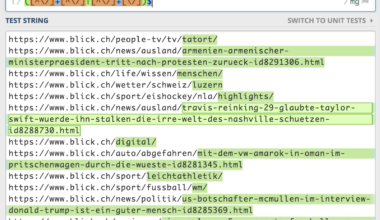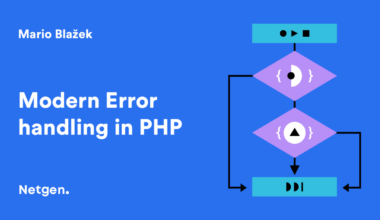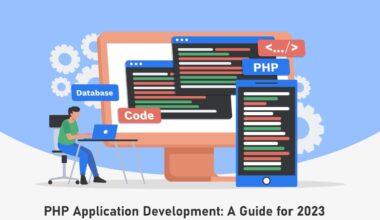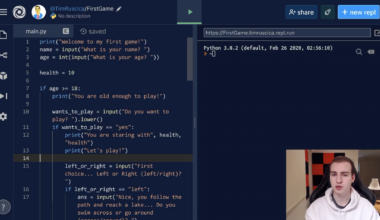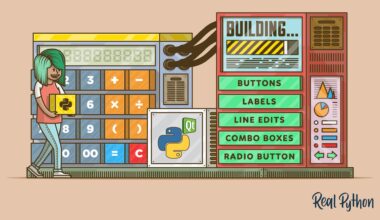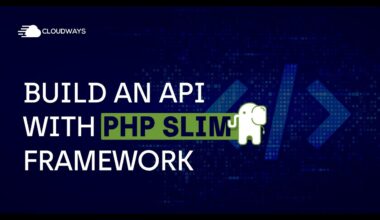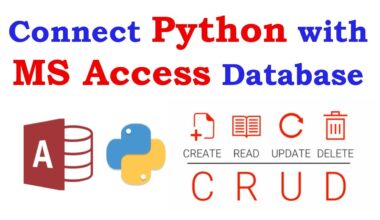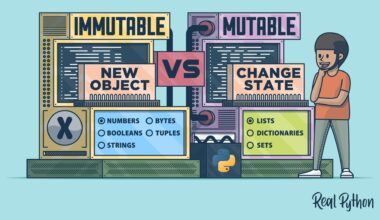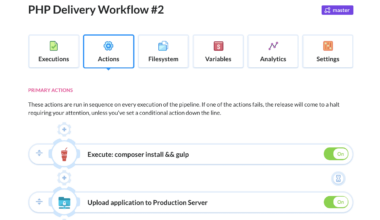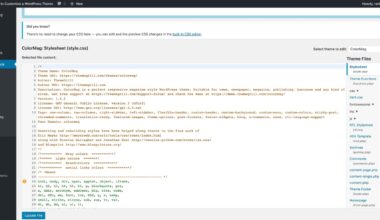Introduction to PHP and Zend Framework
As a web developer, I have always been fascinated by the power of the PHP programming language. It is an open-source server-side scripting language that has been used to power some of the most popular websites in the world, including Facebook, Wikipedia, and WordPress.
PHP is incredibly versatile and can be used to build a wide range of web applications, from small-scale websites to large-scale enterprise applications. However, building scalable solutions with PHP requires a solid understanding of the language and the right tools. That is where the Zend Framework comes in.
Zend Framework is a collection of professional PHP packages that can be used to build web applications. It provides a set of reusable code libraries that can be used to accelerate the development of PHP applications. Zend Framework has been developed by Zend Technologies, the same company that created PHP, and has been used to build some of the most complex web applications in the world.
Using the Zend Framework for building scalable solutions with PHP has many benefits. It provides a solid foundation for building robust and reliable web applications, and it enables developers to focus on building the core functionality of their applications rather than worrying about low-level details.
In the next section, we will explore what scalability means in web development and how PHP and Zend Framework can help us build scalable solutions.
Understanding Scalability in Web Development
Scalability is the ability of a web application to handle an increasing number of users and requests without compromising its performance. In other words, a scalable application can handle a sudden influx of traffic without crashing or slowing down.
Scalability is crucial for any web application, especially for those that are expected to grow rapidly. As a web developer, it is essential to understand the importance of scalability and the techniques that can be used to achieve it.
There are two types of scalability: vertical and horizontal. Vertical scalability involves increasing the resources of a single server to handle more traffic. On the other hand, horizontal scalability involves adding more servers to distribute the traffic load.
PHP and Zend Framework are well-suited for building scalable solutions because they provide the necessary tools and techniques for both vertical and horizontal scalability.
One of the key benefits of using PHP for building scalable solutions is its ability to handle multiple requests simultaneously. PHP can handle multiple requests using either multi-threading or multi-processing. Multi-threading involves executing multiple threads within a single process, while multi-processing involves creating multiple processes to handle requests.
Zend Framework provides a robust set of tools for building scalable solutions. One of the most important tools is Zend Cache, which allows developers to cache data and reduce the load on the server. Zend Cache supports multiple storage options, including file-based caching, memory-based caching, and database-based caching.
Another important tool for building scalable solutions with Zend Framework is Zend Queue. This tool allows developers to offload time-consuming tasks to a separate queue, freeing up the server to handle more requests.
In addition to these tools, there are several best practices that developers should follow when building scalable solutions with PHP and Zend Framework. These include:
– Optimizing SQL queries to reduce database load
– Using a content delivery network (CDN) to distribute static content
– Minimizing HTTP requests by combining resources
– Using a load balancer to distribute traffic across multiple servers
By following these best practices and using the tools provided by PHP and Zend Framework, developers can build robust and scalable solutions that can handle a large number of users and requests.
In the next section, we will explore the benefits of using PHP and Zend Framework for building scalable solutions.
Benefits of Using PHP and Zend for Scalable Solutions
PHP and Zend Framework offer several benefits for building scalable solutions. Let’s explore some of them below:
1. Open Source:
PHP and Zend Framework are open-source, meaning they are free to use and can be easily customized according to the requirements of the project. This makes it easy for developers to build scalable solutions without having to worry about licensing costs.
2. Large Community:
PHP and Zend Framework have a large community of developers who contribute to their development. This community provides support and resources for developers, making it easy for them to find solutions to problems and develop new features.
3. Rapid Development:
Zend Framework provides a set of reusable code libraries that can be used to accelerate the development of PHP applications. This means developers can focus on building the core functionality of their applications rather than worrying about low-level details.
4. Robust Security:
PHP and Zend Framework offer several security features that can be used to protect web applications from attacks. These features include input filtering, output encoding, and data validation. Additionally, Zend Framework provides encryption and decryption libraries that can be used to secure sensitive data.
5. High Performance:
PHP and Zend Framework are optimized for high performance. PHP can handle multiple requests simultaneously, and Zend Framework provides tools for caching data, offloading time-consuming tasks, and reducing server load.
6. Modular Architecture:
Zend Framework has a modular architecture, meaning developers can use only the components they need and avoid unnecessary overhead. This makes it easy to build scalable solutions that can be easily extended and modified.
7. Integration with Other Technologies:
PHP and Zend Framework can be easily integrated with other technologies, such as databases, message queues, and web services. This makes it easy to build complex web applications that can handle a large number of users and requests.
In summary, PHP and Zend Framework offer several benefits for building scalable solutions. They are open-source, have a large community, offer rapid development, robust security, high performance, modular architecture, and integration with other technologies. By using PHP and Zend Framework, developers can build scalable solutions that are reliable, robust, and secure.
Tips for Building Scalable Solutions with PHP and Zend
Building scalable solutions with PHP and Zend Framework requires careful planning and implementation. Here are some tips that can help you build scalable solutions with PHP and Zend:
1. Plan for scalability from the start:
Scalability should be a consideration throughout the entire development process. Start with a solid architecture that allows for future growth and make sure that the code is modular and easy to extend. Consider using a framework like Zend Framework that provides a set of tools and libraries for building scalable solutions.
2. Use a caching strategy:
Caching can significantly reduce the load on the server and improve performance. Zend Framework provides a robust caching system that supports multiple storage options like file-based caching, memory-based caching, and database-based caching. Use caching to store frequently accessed data and reduce the number of requests to the server.
3. Optimize database queries:
Database queries can be a significant bottleneck in web applications. Optimize your SQL queries to reduce the load on the database server. Use indexes, limit the number of rows returned, and avoid using multiple queries when a single query can suffice.
4. Use a content delivery network (CDN):
A CDN can distribute static content like images, videos, and CSS files across multiple servers, reducing the load on the primary server. Consider using a CDN to improve the performance of your web application.
5. Offload time-consuming tasks:
Offloading time-consuming tasks to a separate queue can free up the server to handle more requests. Zend Queue is a tool provided by Zend Framework that allows developers to offload tasks to a separate queue and process them asynchronously.
6. Use load balancing:
Load balancing distributes traffic across multiple servers, reducing the load on each server and improving performance. Use a load balancer to distribute traffic across multiple servers and ensure that the load is evenly distributed.
7. Monitor server performance:
Monitoring server performance is crucial for identifying bottlenecks and optimizing performance. Use tools like New Relic or Nagios to monitor server performance and identify areas that need improvement.
In conclusion, building scalable solutions with PHP and Zend Framework requires careful planning and implementation. Use tools like caching, load balancing, and offloading time-consuming tasks to a separate queue to improve performance. Optimize database queries and use a content delivery network (CDN) to reduce the load on the server. Finally, monitor server performance to identify areas that need improvement and optimize accordingly. By following these tips, you can build robust and scalable web applications with PHP and Zend Framework.
Real-world Examples of Scalable Solutions Built with PHP and Zend
PHP and Zend Framework have been used to build some of the most popular and highly scalable web applications in the world. Here are some real-world examples of scalable solutions built with PHP and Zend:
1. Magento
Magento is an open-source e-commerce platform that is built on top of the Zend Framework. It is used by some of the world’s largest e-commerce websites, including Nike, Samsung, and Ford. Magento is highly scalable and can handle a large number of products and customers.
2. Badoo
Badoo is a social networking website that has over 400 million users worldwide. It is built using PHP and the Zend Framework and is highly scalable. Badoo uses a combination of vertical and horizontal scaling to handle its large user base.
3. BBC
The BBC is one of the world’s largest broadcasters and has a highly scalable website built with PHP and the Zend Framework. The BBC website handles a large amount of traffic and uses a content delivery network (CDN) to distribute static content.
4. Shutterstock
Shutterstock is a stock photography and footage website that is built using PHP and the Zend Framework. It handles a large volume of traffic and uses a combination of caching and load balancing to improve performance.
5. Slack
Slack is a popular team collaboration tool that is built using PHP and the Zend Framework. It is highly scalable and can handle a large number of users and messages. Slack uses a combination of vertical and horizontal scaling to handle its large user base.
These are just a few examples of the many scalable solutions that have been built with PHP and Zend Framework. By using these technologies, developers can build robust and scalable web applications that can handle a large number of users and requests.
Final Thought: Future of Scalable Solutions with PHP and Zend
The future of scalable solutions with PHP and Zend Framework is bright. As web applications continue to grow in complexity and scale, the demand for scalable solutions is only going to increase.
PHP and Zend Framework are well-positioned to meet this demand. With their open-source nature, large community, and robust set of tools and libraries, PHP and Zend Framework offer developers a solid foundation for building scalable solutions.
In the future, we can expect to see more tools and libraries added to PHP and Zend Framework that specifically address scalability. We may also see more emphasis on technologies like microservices and containerization, which can help make web applications more scalable and easier to deploy.
As the demand for scalable solutions continues to grow, it is essential for developers to continue learning and adapting to new technologies and best practices. By staying up-to-date with the latest developments and trends in web development, developers can build robust and scalable solutions that meet the needs of their users and clients.
In conclusion, PHP and Zend Framework are powerful tools for building scalable solutions. With their open-source nature, large community, and robust set of tools and libraries, developers can build web applications that are reliable, robust, and scalable. As the demand for scalable solutions continues to grow, developers must continue to learn and adapt to new technologies and best practices to stay ahead of the curve.











